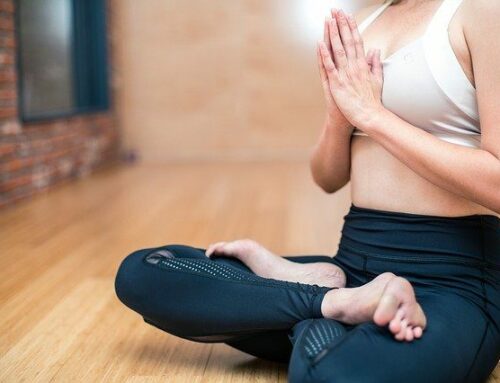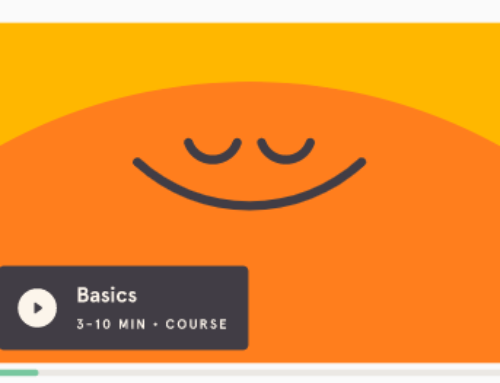How Long Should You Meditate Daily to Get Effective Results?
The power of meditation is a unique experience shared by every practicing person as it leads to unexpected discoveries about yourself. One common and interesting question that I normally get is, “how long should I meditate?”
Many ask, will meditating for five minutes give you the benefits you want, or do you need to go for 90 minutes? Well, the real question is, do you want to meditate more, or do you feel the need to meditate based on what you read and hear?
Since we lead busy lives, we often feel rushed, and sitting still for more than five minutes can feel like wasting time. Nevertheless, we still acknowledge the practice of mindfulness; that’s why knowing the ideal amount of time to meditate is crucial.
So, let me get on to answering this question, and hopefully, I’ll give you a satisfactory answer.
What Are the Results of Consistent Meditation?
A daily meditation routine is important to establish momentum and condition your mind. I have been meditating since I was 17, and I can tell you that it has made a difference in my life. I can also tell you that there’s a huge difference between two months and five years of meditation.
To this end, the main benefits of consistent meditation surround how you live your life. You develop more peaceful thoughts and get to peace quicker because you know how peaceful feels.
The other benefit that you receive comes with spiritual development. Reaching the deep state of meditation comes with knowing it’s a place only you can go to, but you’re completely comfortable with it.
Consistent meditation comes with having the courage to live your life fully. You feel perfectly equipped with the courage to do something that no one else would dare do because your mind is adequately equipped to face any obstacles.
Apart from getting to peace faster, you also get to beat personal vices and upheavals that could otherwise be stumbling blocks.
How Long Should You Meditate?
A monk once told me that I need more time to reach the deeper states of meditation. I then reached out to a meditation expert, and his advice was to improve my practice and not set a time goal based on others.
For me, I have done as little as five minutes and as long as 90 minutes. I find that morning and evening meditation have different impacts. Morning meditation helps me clear any mental blockage, and I can compartmentalize the rest so that I have a great day. On the other hand, evening meditation washes away the day’s stress so I can sleep better.
For anyone starting their meditation journey, starting with five minutes each session then increasing it to 15 minutes is as much as you need to calm your mind. In Bodhipaksa of Wildmind Buddhist Meditation’s own words, “any amount of meditation is better than none.”
My best advice Is to try and increase the frequency and duration and see if it’s worthwhile for you. For some people, it also depends on your technique and goals. For example, if you’re practicing Vipassana meditation, one hour once per day is ideal for keeping your mood, motivation, and determination up for your daily grind. Nevertheless, that much time may not be sustainable as a habit.
Meanwhile. 15 minutes can be reasonable for many people leading busy lives while one hour can be the time you need to achieve a peaceful state of mind. In other words, trial and error will allow you to truly know what you need, beyond the common knowledge that you need daily meditation practice.
Here are the opinions of other experts on how long you should meditate.
- Giovanni Dientsmann, a meditation teacher at LiveAndDare.com, started with 20 minutes of meditation every day.
- Mindfulness In Plain English, by Bhante Gunaratana, advises beginners to start with 20-30 minutes session and gradually extend it to an hour after 12 months.
- According to Morgan Dix, who’s been meditating for more than 20 years,
if you find 20 minutes of meditation difficult when starting, it’s okay to start with 5-10 minutes.
Is 15 Minutes of Meditation a Day Enough?
It can be especially hard to quiet the mind in only fifteen minutes. But the beauty of it is that it can be done with practice. It won’t be easy at first since you may feel like you don’t have 15 minutes to spare. Many people obsess over the time, and your thoughts can easily turn into, “Is it ten minutes already? I have five minutes to go,” and so forth.
It’s better not to keep looking at the clock but to permit yourself and allow yourself the time to meditate. Keep in mind that a deeper practice does not mean more time. Hence 15 minutes should not be the goal. Rather, the underlying objective is to be clear about yourself and how you interact with the present.
How Long Does It Take for Meditation to Work?
There’s no concrete answer to when you’ll start reaping the benefits of meditation.
It can be a few weeks for some, while it can take one to two months for others. I know from experience that a daily practice of 15 – 30 minutes helped me achieve the results I wanted according to the goals I had set.
I’ll tell you this; meditation is a practice in patience. As a 17-year-old boy, I didn’t have any goals in mind when I first started, and it was a wait-and-see period for me. I started monitoring my days and found that I was no longer negative and uninspiring. I was more patient with people, and this took me about six months to say I was in a better place.
For you, it’s better not to think of a time frame but focus on getting better at relaxation. It helps to use some effort on your thoughts and breathing and then let meditation complete itself. The result you’re looking for will reveal itself in due time.
Final Thoughts
It’s important to sit in silence. But it’s not about how long, but about your intention and the effort you put in it. Meditation trains your awareness in comfortable surroundings. When you finish meditating, you drop the method but stay mindful throughout the day. You can look forward to carving out your day to meditate with daily practice.





I could certainly use meditation. I have problems with stress and anxiety and also problems to concentrate. I often get distracted when I do something and then I unmotivated and try to do something else. In other words it is hard to focus on something. Could meditation help me with this??
I also wonder, when you are really stressed, how can you calm down enough to start the meditation? I mean it must be important to concentrate in order to meditate. I have only tried meditation a few times and those times I had the guidance of an instructor.
Thank you for a great post.
Hi Jojo,
Meditation does help with focus. But you need to give it time. You can check out some helpful guided meditation audio in my post here. This will help you to focus.
As for meditating after a stressful days, I know it can be tough. You can try some helpful tips here.
Hope it helps.
Cheers,
Kenny
Hi Kenny,
I’ve dabbled with various techniques and methods over the years, but I’ve never really lasted more than a few months. I find Headspace to be very soothing, and it always calms me down, but I just can’t seem to stick with it for great lengths of time.
The one thing that I have had great success with, and which helps with my writing and creativity is listening to Binaural Beats. I find a good track, regardless of the frequency, will completely zone me out. My mind goes totally blank, and I experience a beautiful sensation of complete nothingness.
When I come around I feel amazing, and my creative juices are free flowing again.
I’m not sure if that is classic meditation like you’re describing, but it certainly works for me. Is it just a placebo? Who knows? But to be honest, I don’t really care as the benefits I receive are worth it.
Do you have much experience with Binaural Beats?
Hi Fray,
I’ve experienced binaural beats before. It works wonder like you said. Good for relaxation. If relaxation is all that you crave, then by all mean go for that.
But if you are looking to build mindfulness, concentration or other benefits here, then I suggest you do meditation (Headspace) after listening to binaural beats. It will help.
Cheers,
Kenny
Oh wow, it looks like I need to start meditating. I think I’ll bookmark your page.
I have to say that I’m not a big fan of brown color schemes but I love yours and how your picture design compliments it so well.
Good information and question response. Its always good to see someone so invested in helping their readers. tfs 🙂
Hi Marlinda,
Thanks for loving my site. Do let me know if you need further info on meditation.
Cheers,
Kenny
This is so helpful,. I have been trying to do 15 or 20 minutes of meditation every night before I go to sleep. I’ve been so much calmer and more positive, to the point that I’ve actually seen some major changes start to occur in my life!
Hannah,
I’m happy to hear good things are happening to you in your life. Do keep it up.
Cheers,
Kenny
I like this; very informative. I like the different sections. I have been meditating for a while but it is a good reminder of certain things.
thank you
vee
Hi Valia,
Thanks for sharing your thoughts.
Kenny
I think this is a wonderful post, and it helps to remind people they need to literally “stop and smell the roses” from time to time. I love the quote too! Yes, people can and should meditate, and they can begin just about anywhere even if only for a few minutes at a time. From there, they can build up to 10 or even 20 minutes a day.
Hi Toni,
Thank you for sharing your thoughts here. Meditation requires commitment before anything starts to happen. May people don’t realise that. That said, we shouldn’t force ourselves to meditate. Instead, set an intention to do so and follow through.
Cheers,
Kenny
I have always been interested in meditation and alternative means of managing stress and quality of life. It has been a long time since I last meditated and I am thinking very seriously of getting back into it. You have a lot of great tips on how do start again. I find it very hard to concentrate and read where it is better not to fight the random thoughts that keep interupting meditation. What is your view on this. Thanks for a dreat post. Cheers Kev
Hi Kevin,
Don’t fight the random thoughts that interrupts you. It won’t work and meditation it’s not about that. Instead when your mind wanders, gently bring it back to your breathing or meditation objects. Mentally note that you are “thinking”.
Keep doing this and you feel your mind gets tamer. Forcing it only leads to frustration.
Hope it helps.
Cheers,
Kenny
Hi Kenny,
Thank you for sharing. With the busy schedule most people have, they find it hard to make time for meditation. Each day brings so much stress and frustration sometimes due to the day’s activity I can see how meditation can help one overcome the stress and bring a more calm way of life. Great post!
Hi Rosa,
Thanks for sharing your thoughts. The harder we find time to meditate, the more we need to make time for meditation.
Cheers,
Kenny
I’ve just started a meditation routine and have been at 20 minutes now for a couple of weeks. I saw improvement right from the start even with 5-10 minutes. I’m no expert, but I love the benefits already!
Sarah,
It’s great that you are gaining much from the meditation. What specifically improves in your life?
Cheers,
Kenny
I found this really interesting because I started meditation recently because of anxiety. I sometimes do wonder if it is really working on me , because yes, I am either asleep or restless after 10 min. Sometimes before! The cushion for the back is really helpful to know too. thanks
Hi Melanie,
If you are new to meditation, I’ll suggest trying guided meditation before the unguided practice. It will help to ease your mind so meditation becomes easier.
Read this. How Guided Meditation Audio Helps Kickstart Mindfulness Practice
Hope it helps.
Cheers,
Kenny
I have meditated for years and I agree that the first 10 minutes is like a warm up, and I have noticed that the more I meditate the more I notice that this is the case.
Do you ever use binaural beats to enhance your meditation experience? I actually found using sound technology changed everything for me and made meditation much easier and I noticed more measurable results. What are your thoughts on this?
Liz,
I’ve experienced binaural beats prior to meditation. It works wonder especially you are stressed. I’ll say it complements meditation well. But should never replace the actual practice itself.
Check my post here Best Ways To Meditate At Home When You Are Tired and Stressed.
Cheers,
Kenny
Hi Kenny,
Thank you for the advice about meditation for Panic Attacks.
I am going to follow the steps for at least two weeks 😉
Heine
Heine,
Do let me know how does it go for you after 2 weeks.
Cheers,
Kenny
Hey Kenny =)
Really enjoyed reading this post because meditation is such an important practice to get into.
I meditate for 20 minutes every day and I feel wonderful. It’s definitely down to consistency =)
Thanks again for another useful post which will helps lots of people!
Hi Lawrence,
Thanks for sharing your thoughts.
Cheers,
Kenny